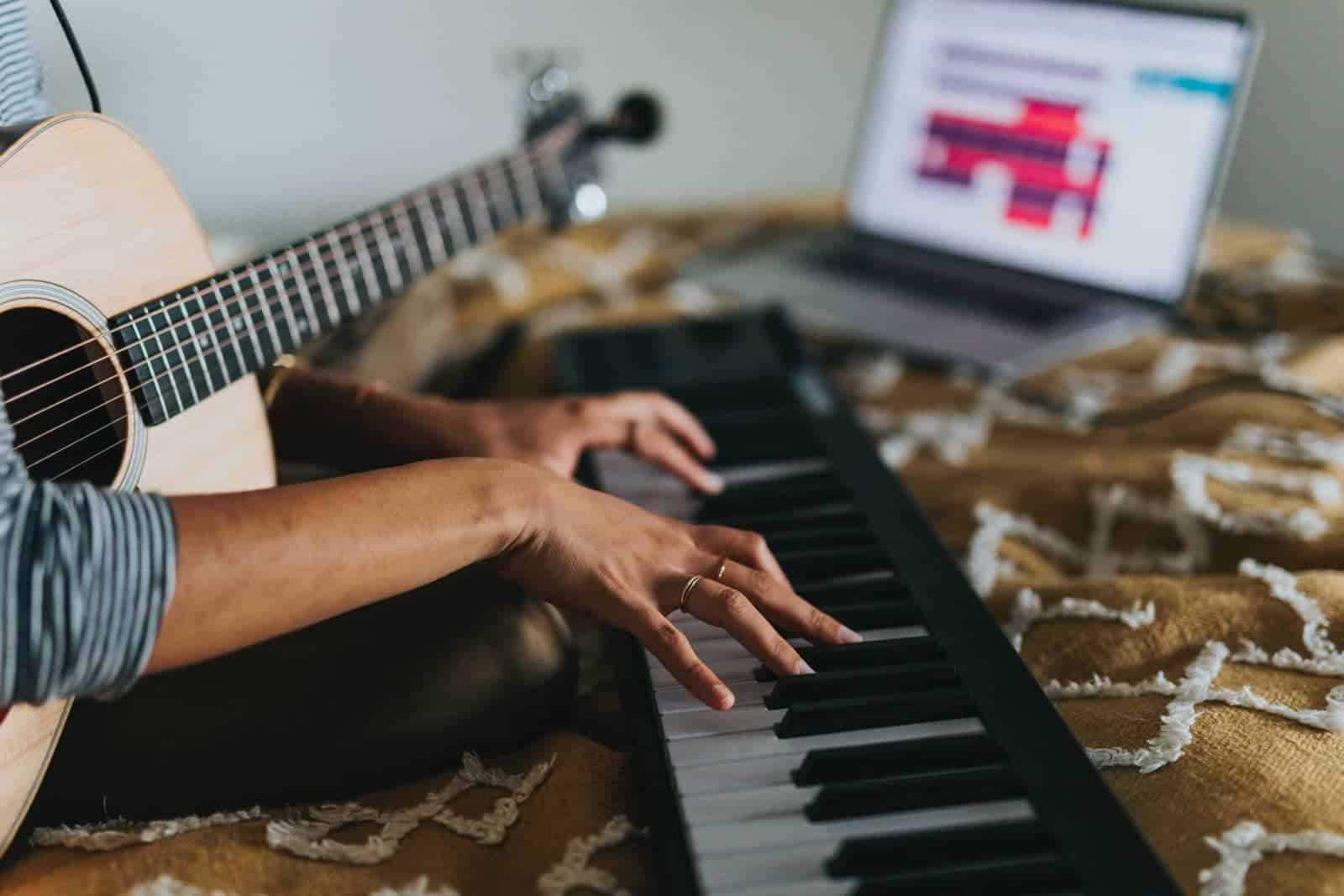Welcome to the ultimate laptop buying guide for recording music enthusiasts. As a fellow music creator, I know that finding the best laptop for recording music can be a daunting task. With countless options available, it's essential to find the right balance of performance, portability, and affordability that caters to your specific needs in music production.
When it comes to recording and producing music, some key factors should be considered. These include a laptop's processing power, RAM capacity, and storage capabilities. Additionally, it's crucial to look for a laptop with a reliable and robust audio interface that can handle multiple inputs and outputs seamlessly. My expertise in laptops, combined with my passion for music recording, has led me to review an extensive laptop spreadsheet of recent releases, comparing specs and reviews from both professionals and everyday users. This process allows me to narrow down the top laptops for recording music based on topic-specific requirements and various price ranges.
As an active member of the music production community, I understand the importance of staying up-to-date with the latest DAW software, VST plugins, and hardware trends. By keeping a close eye on discussions in music production forums, social media groups, and industry news, I strive to provide the most relevant and valuable information for those in search of the best laptop for recording music. In this guide, you'll find recommendations tailored to different budgets, preferences, and experience levels, ensuring that you can make an informed decision and focus on what truly matters: creating and sharing your music.
Unleashing the Power: How to Choose the Perfect Processor for Your Music Production Laptop
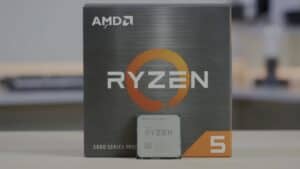
When it comes to recording music, having the right processor in your laptop is crucial. The processor is responsible for handling all the calculations and operations required for recording and editing audio, and a powerful processor will ensure that your workflow is smooth and efficient.
So, how much CPU power do you really need for music production? The truth is, it depends on the complexity of your projects. For basic recording and mixing tasks, a mid-range processor like the i5-11320H or AMD Ryzen 5 5600U should suffice. However, if you're working on more demanding projects with multiple tracks and effects, you'll want to opt for a more powerful processor like the i5-11500H.
While most digital audio workstations (DAWs) don't utilize multiple cores effectively, having a processor with multiple cores can still benefit music production. For example, you can run other programs alongside your DAW without experiencing any slowdowns, and you'll see improved performance in tasks like exporting and rendering.
Do you need a high-end laptop specifically for music production? Not necessarily. However, if you plan on using your laptop for other resource-intensive tasks like gaming or video editing, a high-end laptop may be a better investment in the long run.
Here's a breakdown of recommended CPUs for every budget:
| Budget | Processor |
|---|---|
| Minimum | i5-11320H |
| Recommended | AMD Ryzen 5 5600U |
| High-end | i5-11500H |
When choosing a laptop for music production, it's important to ensure that the laptop has an efficient processor cooling system. This will help prevent fan noise and heat-induced distortion, which can negatively impact your audio quality. Additionally, I recommend using Cinebench R23 to compare different processors since it's an excellent way to measure single-core performance in audio applications.
In summary, when deciding on the right laptop processor for recording music, consider the complexity of your projects, the efficiency of the processor cooling system, and the overall value for your budget. With the right processor, you can take your music production to the next level.
Powering up your music visuals
When it comes to recording music, a dedicated graphics card is not always necessary. An integrated graphics chip will work fine for most music production tasks. However, if you use a Digital Audio Workstation (DAW) that can leverage the GPU for audio processing, such as Pro Tools, then a dedicated graphics card might be useful.
If you are looking for a laptop with a dedicated graphics card, it is essential to ensure that it has an adequate power delivery system, at least 60 watts through the PCIe bus. You should also know how to identify a fast graphics card from the rest.
To test the performance of different GPUs, I recommend using 3DMark. It is one of the most popular benchmarks that test both CPU and GPU performance in a single test.
In terms of price levels, you should expect varying performance capabilities. At the minimum level, the GeForce RTX 3050 is a good option. If you can afford it, the recommended GPU would be the GeForce RTX 3060. For high-end laptops, you should look for the GeForce RTX 2080 SUPER.
It's worth noting that some musicians may consider purchasing a gaming laptop with a dedicated graphics card. However, these laptops tend to be bulky and expensive. If portability and affordability are priorities, then a laptop with an integrated graphics card will suffice.
Here are my recommended GPUs grouped by price level and laptop recommendation:
| Price Level | Recommended GPU | Laptop Recommendation |
|---|---|---|
| Minimum | GeForce RTX 3050 | Lenovo IdeaPad Gaming 3 |
| Recommended | GeForce RTX 3060 | ASUS ROG Zephyrus G14 |
| High-end | GeForce RTX 2080 SUPER | MSI GT76 Titan DT |
In conclusion, while a dedicated graphics card may not always be necessary for music production, it can be helpful if you use a DAW that leverages the GPU. Ensure that your laptop has an adequate power delivery system and use benchmarks like 3DMark to assess GPU performance.
Unveiling the mysteries of recording music laptops
Q: What laptop is best for music recording?
The best laptop for music recording depends on your budget and specific needs. If you're looking for a budget option, the Lenovo Ideapad3i with a GeForce RTX 3050 graphics card is a great choice at $910. For a more high-end option, the ASUS ROG Strix Scar G733CX-XS97 with a GeForce RTX 2080 SUPER graphics card at $3,800 is the top of the line choice.
Which laptop has the best sound card for music production?
While many laptops now have high-quality sound cards, the ASUS ROG Strix Scar and Lenovo Legion 5 Pro both have excellent sound cards for music production.
What specs do I need for a music production laptop?
The minimum requirements for a music production laptop should be 16 GB of memory, an i5-11320H processor, and a GeForce RTX 3050 graphics card. For a medium-level laptop, 32 GB of memory, an AMD Ryzen 5 5600U processor, and a GeForce RTX 3060 graphics card are recommended. For the maximum specs, you should look for a laptop with 64 GB of memory, an i5-11500H processor, and a GeForce RTX 2080 SUPER graphics card.
Can you record music on a laptop?
Yes, you can record music on a laptop. In fact, many music producers and recording artists use laptops for their music production needs.
Is a MacBook good for recording music?
Yes, MacBooks are popular among music producers and recording artists due to their stability and performance. However, they can be more expensive than other laptop options.
How much RAM do you need for music production?
For music production, it is recommended to have at least 16 GB of RAM. If you plan on working with large projects and multiple tracks, 32 GB of RAM or more is preferred.
What is the best DAW software for a laptop?
There are many DAW (digital audio workstation) software options available, and the best one for you depends on your specific needs and preferences. Some popular options include Ableton Live, Logic Pro X, and FL Studio.
What is the best budget laptop for recording music?
The Lenovo Ideapad3i with a GeForce RTX 3050 graphics card is a great budget option at $910.
Do I need an external audio interface for recording music on a laptop?
While it is not necessary to have an external audio interface, it can improve the quality of your recordings. However, if you're just starting, you can always begin recording using your laptop's built-in microphone and work your way up.
What are the top laptops for professional music production?
The Lenovo Legion 5 Pro and ASUS ROG Strix Scar are both excellent options for professional music production. If budget is not a concern, the ASUS ROG Strix Scar G733CX-XS97 is the most high-end option on the market.
RAM it up: How much do you need for recording music?
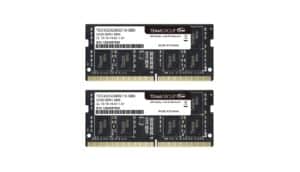
When it comes to recording music, RAM is one of the least important components in a laptop. However, it's still worth considering because it can impact your performance. In general, most mid-range laptops come with 16 GB of RAM, while high-end laptops come with 32 GB or more.
If you're looking for a laptop for music production, you'll need at least 16 GB of RAM, but 32 GB would be better if you're working with audio and video. If you have the budget, 64 GB would be ideal for high-end projects.
While the latest-gen CPUs support DDR5, it is still a relatively new and expensive technology that needs time to mature. DDR4 is more common and affordable. The good news is that there's no difference in terms of audio quality between DDR4 and DDR5. So, if you're on a budget, you shouldn't worry about getting the latest generation of RAM.
Other specs to keep in mind include ECC (error-correcting code), CL (CAS latency), and latency. ECC memory can detect and correct errors in data, which can be useful for critical projects. CL measures the delay between the processor and the memory, while latency is the amount of time it takes for data to travel from the memory to the processor.
To summarize, if you're looking for a laptop for music production, aim for at least 16 GB of RAM, but 32 GB or more would be better. DDR5 is not worth the money at the moment, so stick with DDR4. If you have the budget, consider ECC memory and lower CL and latency numbers for better performance.
Here's a table of recommended RAM configurations depending on your budget:
| Budget | RAM |
|---|---|
| Entry-level | 16 GB DDR4 |
| Mid-range | 32 GB DDR4 |
| High-end | 64 GB DDR4 (or DDR5 if budget allows) |
4 Best Laptops for recording music
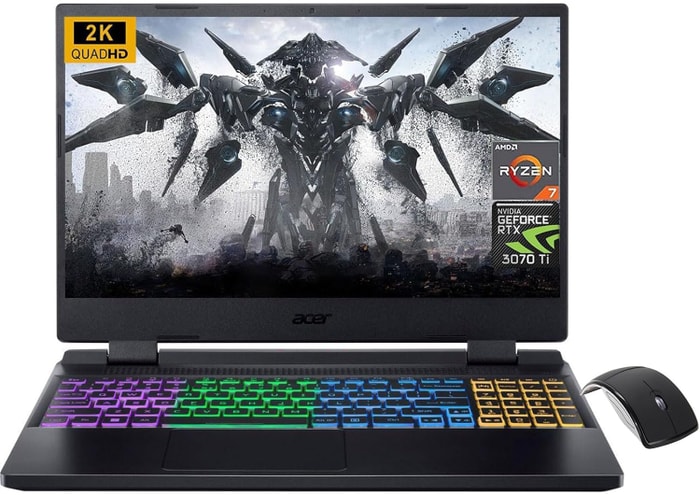 $680
$6801.acer Nitro 5
recording music laptop- One of most affordable laptops with an AMD Ryzen 7 processor
- Fat 1TB SSD
- No IPS Panel (subpar viewing angles)
Alternatives
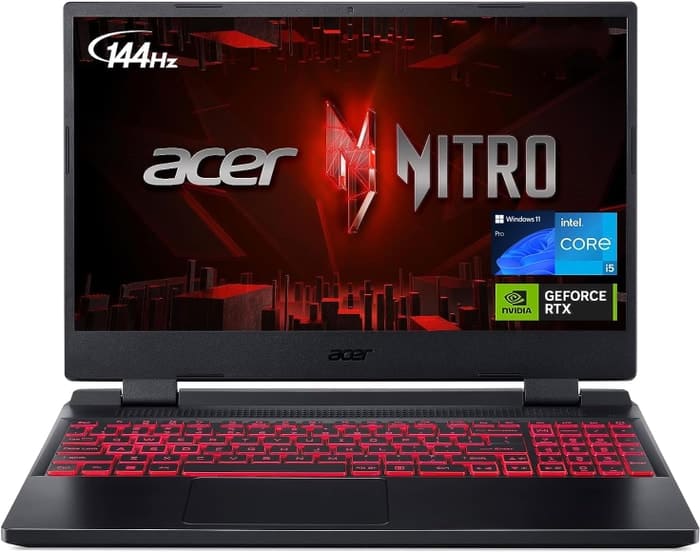
Acer Nitro 5
- Affordable price
- Good gaming performance with 12th Gen CPU and GeForce RTX 3050 Ti
- Limited storage capacity and CPU power for gaming
- Middling build quality

2.ASUS TUF Dash F15
The ASUS TUF Dash F15 is a competitively priced laptop that offers good performance and a lightweight build, making it a solid option for recording music on a lower budget.- Lightweight and well built
- Good performance for recording music
- Competitive price
- Some quirks affecting everyday ergonomics
- Ports squeezed together on the left edge
- Potential issues with the FHD 144Hz screen option
Summary
The TUF Dash F15 is a powerful and well-built laptop that offers good performance for recording music. It has a lightweight design and a competitive price, making it a great option for those on a lower budget. Just be aware of the potential issues with the FHD 144Hz screen option.
Reviews
Alternatives

Lenovo Legion 5i Pro 16
- Stylish, sleek form factor
- Gorgeous display
- Webcam quality is disappointing
- Lacks biometric features
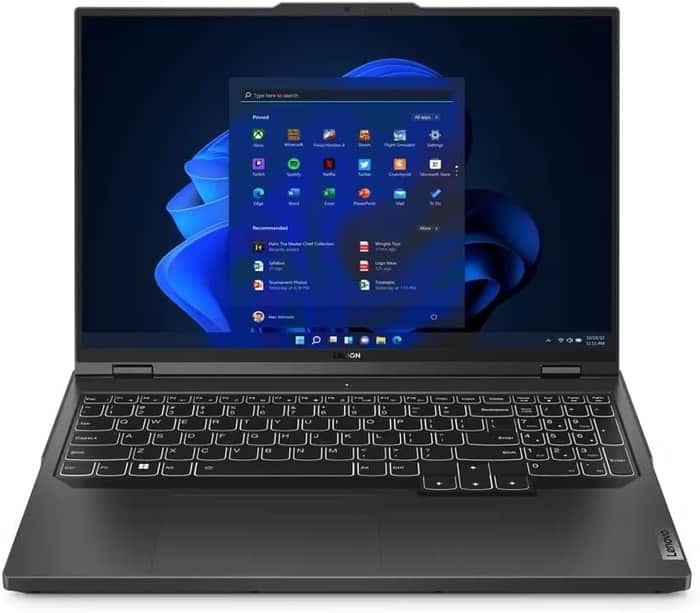
3.Lenovo Legion Pro 5
Lenovo Legion Pro 5: A good-value mid-tier laptop for recording music, but watch out for hotspots and lacking speakers.- Good build quality and design
- Good screen and IO
- Competent CPU with multiple GPU options
- Competitively priced
- No Thunderbolt or biometrics
- Hotspots under sustained loads
- Poor speaker quality
- So-so battery life
Summary
The Lenovo Legion Pro 5 is a solid choice for recording music with its good build quality, screen, and performance. However, potential buyers should be aware of hotspots under sustained loads and the disappointing speaker quality.
Reviews
Alternatives
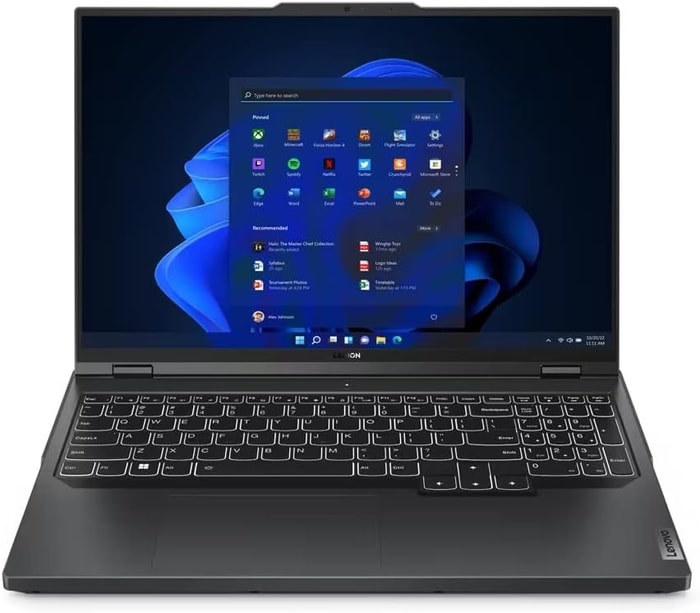 $2,840
$2,840Lenovo Legion Pro 5
- Strong performance for the price
- Quality build and port selection
- Display quality and battery life are just decent
- Bulky and heavy

4.Lenovo Legion Pro 7i 16
Lenovo Legion Pro 7i 16: The sleek and powerful gaming laptop that won't break the bank.- Strong overall performance
- Big, bright, and fast display
- Per-key RGB lighting
- Some flex to keyboard deck
- Poor battery life
Summary
The Lenovo Legion Pro 7i 16 impresses with its high-end specs, including an i9-13900HX processor and RTX 4090 graphics card, all at a reasonable price. While it may have some limitations in GPU performance and battery life, it offers excellent overall performance and a stunning display, making it a great choice for gamers on a budget.
Alternatives

HP Omen 17
- QHD display with 165 Hz
- Expandable working memory
- Slightly below-average performance for a RTX 4080
- High noise level
Table of the Best Laptops for recording music
| Laptop | Price (approx) |
| acer Nitro 5 | $680 |
| ASUS TUF Dash F15 | $1,160 |
| Lenovo Legion Pro 5 | $2,630 |
| Lenovo Legion Pro 7i 16 | $3,390 |

